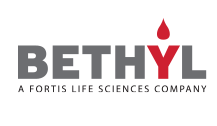Rabbit anti-Huntingtin Antibody

Catalog #
Huntingtin
Human
IP
,WB
Rabbit
Polyclonal
Whole IgG
between 1150 and 1200
IgG
Unconjugated
Antigen Affinity Purified
Product Details
Human
Human
2 - 8 °C
1 year from date of receipt
The Huntingtin (HTT) gene is linked to Huntington's disease, a neurodegenerative disorder characterized by loss of striatal neurons. This is thought to be caused by an expanded, unstable trinucleotide repeat in the huntingtin gene, which translates as a polyglutamine repeat in the protein product. A fairly broad range in the number of trinucleotide repeats has been identified in normal controls, and repeat numbers in excess of 40 have been described as pathological. The huntingtin locus is large, spanning 180 kb and consisting of 67 exons. The huntingtin gene product is widely expressed and is required for normal development [taken from NCBI Entrez Gene (Gene ID: 3064)].
Alternate Names
HD; HD protein; huntingtin; huntington disease protein; IT15; LOMARS
Applications

